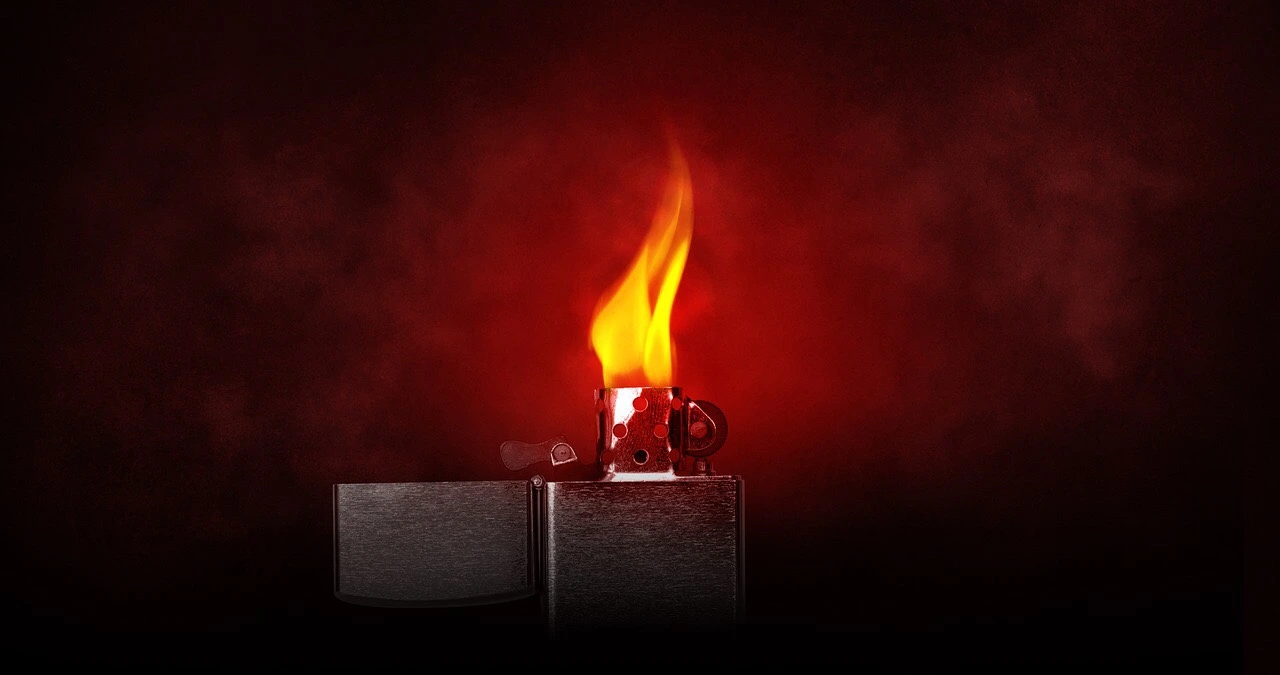
What it is Really Like to Give Up Smoking – The Stuff the NHS Fails to Mention

We live in very strange and disconcerting times, where information is in abundance but the truth is very difficult to find. You would think that something as important as stopping smoking would be documented well across medical institutions, including what to expect and how to cope with withdrawal symptoms. But these institutions have an agenda and if they can pass off quitting smoking as a matter of willpower and little much else, this is what they will do.
This is my second time giving up smoking and as I have gone through the process, I remember clearly why I told myself that the first time would be my last. Having been smoke free for over a year I stupidly forgot the pain of withdrawal and lit up. To my amazement at that time, I wasn’t addicted anymore. I could go days without smoking or (in theory) never smoke again without a craving and I would casually reach for a cigarette without the laboursome need to smoke. In short, on rediscovering smoking and without the feeling of necessity I was enjoying the sensation of smoking.
That was a rocky road and the more I enjoyed my newly rediscovered habit the more I was smoking and before long I was in the same position of not being able to wake up without reaching for a cigarette.
There were a few reasons I gave up smoking the first time and with a few extra added now I once again decided to give up smoking. This is where the health system began to badly fail me. A health system that is adamant that giving up smoking is a top priority, yet they can’t get simple things right.

What Does the NHS Say About Withdrawal from Nicotine?
The truth is the NHS website is absolutely shocking when it comes to information about drug addiction in general, let alone nicotine withdrawal. Instead the NHS have pages and pages of information debunking daily mail articles and very little in the way of literature on smoking. Mad, huh?
Anyway, I will post the link to the withdrawal page or what to expect when you give up smoking and as you will see apart from a link to a further page about putting on weight after quitting there is very little information.
The NHS attitude to smokers is completely disingenuous. Instead of treating individuals like intelligent human beings that might want to understand what is happening, they pretend that nicotine cessation is a minor inconvenience and do NOT give the information about withdrawal with the sole aim of not wanting to dissuade people from quitting.
Why should they give full disclosure if it prevents people from quitting? Well, because I reckon that more people would quit successfully if they were prepared for the horror that is to come rather than blindly follow the NHS into the dark. I would wager that NHS relapse rates for people trying to quit are unacceptably high and this is largely in part because the institution does nothing to prepare people for what nicotine withdrawal actually does.
What Does Nicotine Withdrawal Do?
Everyone’s experience of quitting ANY drug will vary. Some find that once their mind has been made up that withdrawal effects are easier to cope with while others will find that withdrawal is awful.
There are some things common across all people removing nicotine from their lifestyle.
Cravings
I dislike the word craving and I dislike the way the NHS puts out false information about cravings. Consistent across all NHS literature is that when nicotine is removed that people will experience “cravings” like a hungry person might need to eat. First and foremost, cravings vary in severity and within the first 48 hours of giving up smoking cravings will be an absolute nightmare to deal with if you’re going cold turkey. Instead of lasting the 5 minutes and then “going away” as the NHS make out, cravings are part physical and part psychological and one craving can last hours.
This is because the more the mind focuses on the craving the greater intensity it has and then ultimately it becomes unbearable and before you know it you have relapsed. Just don’t think about it? Do as the NHS say and divert your attention. Well, no, the first thing you need to realise is that nicotine is a drug that your brain is chemically dependent on, once you remove that drug your brain will become mush. All it will be able to really do is function on a primitive level until that chemical dependency is satisfied.
Cravings are the single biggest cause of relapse among those trying to quit, making light of them in the way that the NHS does is not only factually wrong, it is absurd.
Instead, the NHS should be promoting coping techniques that actually will help deal with cravings.

Craving Coping Techniques Are;
Sleep – My advice for anyone giving up smoking and planning to do so should clear out their diary for a two-week period. This means take time off work and treat nicotine cessation as it is; giving up a highly addictive drug. When we sleep, we don’t crave or need nicotine, you will rarely (I haven’t come across anyone) find someone who wakes in the night because they were craving a cigarette. If you’re brave enough to go cold turkey then when you get a craving, get in bed and get to sleep.
Sleeping is like a reset button, not only does it immediately turn off the craving but it also gives your body time to readjust in a state that is not aware of other withdrawal symptoms. You might even find that you sleep quite heavily during your first 48 hours, and this is fine. Whatever you need to do to get through it is fine.
Water – I made mention that cravings are at their worst initially. This is because the body really craves nicotine as your nicotine levels subside. Once they are expelled altogether the cravings will become less severe and, in some cases, non-existent. That is why it is crucial to do all you can to pass that initial time frame.
Information about the time it takes for nicotine to be expelled entirely is very diverse across the board. The NHS says that this time frame can take up to 4 days, other health authorities say 48 hours and some say much longer. My experience was that with plenty of water flushing out my system (detoxing works when removing drugs) it took 48 hours for me to cleanse my system of nicotine.
In the first 48 hours, drink plenty of water (fluids, it doesn’t have to be water) and go to toilet as frequently as you need to. This will flush out the nicotine and remove it from your bloodstream faster.
You will find that your only two focuses during the initial phase of quitting are to remove the nicotine and sleep to pass the time as pain-free as possible,
Other Smoking Withdrawal Symptoms
Both times I have quit smoking has been with the use of Champix, a drug that removes cravings by stimulating nicotine receptors and making those same receptors unhappy if they actually get nicotine.
Champix is a hell of a drug and one I highly recommend to those that want to give up smoking in as pain-free a manner as possible.
There are, however, withdrawal symptoms that make giving up smoking almost unbearable without the cravings or the feeling of “I need to smoke again”.
While I am not sure how many of these are caused by Champix and how many are general withdrawal symptoms, I do know first-hand that these are not for those who are unprepared. Again, the NHS is woeful on this front, even after much reading I am not sure which is causing these symptoms. Champix has a bit of a questionable track history when it comes to side effects, something that the NHS isn’t very forthcoming about in learning to cope with them if it is indeed the Champix.
This is what I experienced while giving up smoking;
Depression
Depression during withdrawal is not specifically the depression that I would associate with other times I have experienced it in my life. In withdrawal, there is a pervading low mood, lack of interest in things, low energy and fatigue as well as diminished self-worth. Going through withdrawal you will experience a loss of control over thoughts etc., this only heightens the sense of depression.
Cognitive Function Goes Out of The Window
Your brain will become mush. Things that are simple to do will become daunting or even impossible when going through withdrawal. I found that my mind was very foggy for the first 48 hours and I couldn’t complete even basic work tasks. Couple in the depression and it is very easy to see why people smoke again without cravings as these two combined makes for a very miserable existence.
Fever-Like Symptoms
One of the things you will do without noticing is you will sweat. Sweating is the body’s way of coping with withdrawal and is common across all drug withdrawals. This means that if left untended you will become dehydrated. It is vital that you’re taking on board plenty of fluid. Your body will also likely feel achy and you may find your temperature creeps up. These are not unbearable symptoms in isolation, and they are what I call the body’s “crawlings”. Little irritations that physically remind you that you’re going through withdrawal.
Mood Change
A common side effect of nicotine withdrawal are mood changes, better described in my case as irritability. In general, I am sharp and to the point most of the time, giving up smoking made me like a rapier attached to a stick of dynamite.
Mood changes go through a spectrum as you give up and will make you feel increasingly stressed, short of patience and wanting a cigarette to “calm down”.

The Other Side of Quitting Smoking
I started this blog post in the throws of withdrawal, out of frustration for the lack of information available about some of the symptoms that I experienced and were actually very debilitating for a time.
There are some really great things I have noticed since giving up that may surprise you, so make sure you check out my aptly named follow on article, 10 Surprising Things I Noticed After Giving Up Smoking.
There are also other symptoms that you can experience when giving up smoking that I was fortunate not to really experience. That doesn’t mean that you won’t and unfortunately, as I have no first-hand experience, I can’t hold your hand through those other than to tell you what they are. Below these you will find my last bit of advice that helped me incredibly get to a point where I now consider myself a non-smoker.
Possible Other Withdrawal Symptoms When Giving Up Smoking
Breathing Difficulty – This one seems to affect those that have either been smoking most of their life or those that are older at the time they give up. Smoking puts your body into a default state whereby over time it adapts and accommodates smoking. This means your lungs go into what I call an optimum state for a smoker, meaning they know they are being damaged but put themselves as best they can into a position to function under the stress of smoking.
When you give up smoking the lungs don’t automatically go back to a non-smoker optimum state and they sometimes will never return to that state in the case of chronic lung conditions like COPD or Asthma. This means that your lungs don’t function in a way that you expected them too and because they are damaged irreparably, they struggle to find a new optimum state. Anecdotally, when I worked in the private medical and life insurance sector, time and again I would come across people who had given up smoking and shortly after been diagnosed with either asthma, emphysema or COPD.
This is something that in my opinion needs more research into as if there is a correlation between quitting smoking and developing serious chronic breathing conditions there should be a more balanced approach to the risks. In short, from this perspective (and it is anecdotal) there might be an age at which giving up smoking does more harm than good and though smoking may ultimately mean you die sooner, the quality of life will be higher in this short time than if you give up and suffer for a prolonged time.
Coughing Up Crap – Not the scientific name for it, but many people experience the lungs purging themselves of any excess fluid or gunk and those that quit might experience some quite violent coughing fits. My understanding is that this passes and will progressively go away as you continue to abstain from smoking.
In relative terms (compared to other drugs) nicotine produces some very acute withdrawal symptoms that present themselves frequently because nicotine is incredibly addictive. They are really unpleasant and sometimes when giving up I felt useless and worthless and too low on mood and energy to try and make myself feel better.
Physical symptoms again are unpleasant but the key is unlike other drugs, they are not unbearable with willpower. Giving up smoking isn’t likely to kill you or bring on physical symptoms that could do you any real long-term damage. They are very bad while you are dealing with them, granted, but beyond that they are just by products of you making a healthier lifestyle choice.
I had many urges to smoke but my willpower was awesome when I quit this time and me resolve was made stronger by a mantra that I will silently repeat in times that I feel like having a smoke will be harmless and not detrimental to my quit (the lies we tell ourselves).
“Not another drag.”
And, that is it, no more smoking, no more wasting money, no more nicotine stains. Not only will I NEVER have another cigarette, but I won’t even take a drag. Does that make me sad? Of course, there is a little bit of sadness, but I am sure as time goes by, the grief of losing tobacco will subside and maybe years down the line I won’t even remember what it is like to smoke. All I will know, smoking really isn’t worth it so I won’t be starting again in this lifetime.
